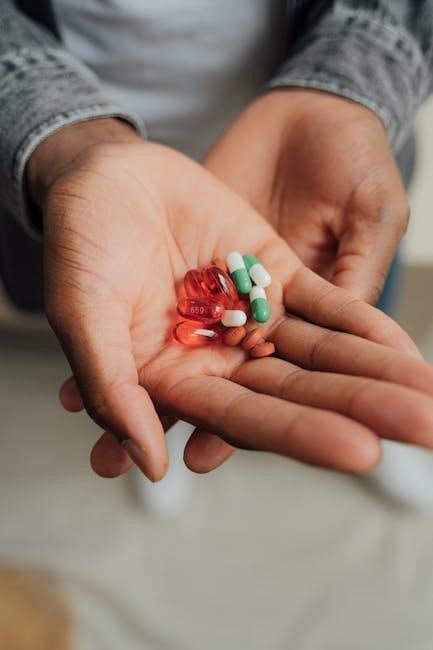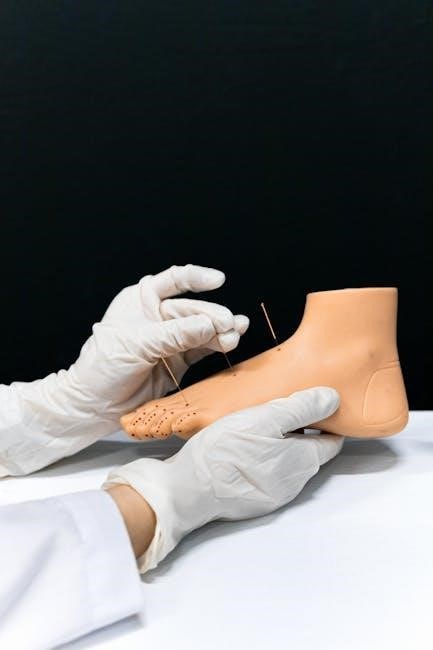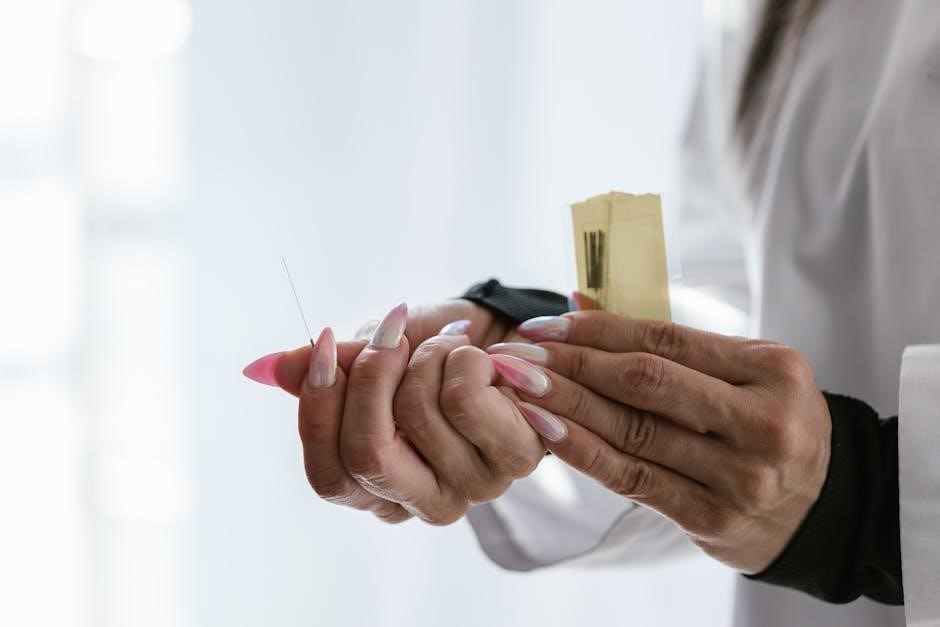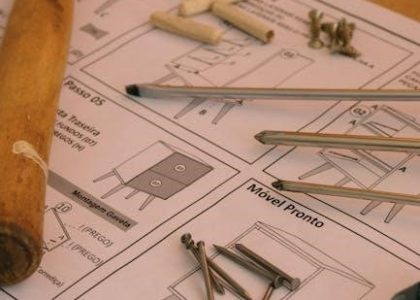Integrative Manual Therapy (IMT) is a hands-on‚ non-invasive approach developed by Dr. Sharon Giammatteo to address pain‚ dysfunction‚ and disease. It treats the body as a whole‚ integrating gentle manipulative techniques to promote healing and restore function across all body systems.
Definition and Overview
Integrative Manual Therapy (IMT) is a unique‚ hands-on approach developed by Dr. Sharon Giammatteo to address pain‚ dysfunction‚ and disease. It combines gentle manipulative techniques to promote tissue repair‚ normalize structure‚ and restore function. IMT treats the body as a whole‚ focusing on the interconnectedness of all body systems. This therapy is non-invasive and emphasizes the use of manual techniques to enhance healing and improve overall well-being. By addressing the root causes of dysfunction‚ IMT aims to restore balance and optimal function to the body‚ making it a holistic approach to health and wellness.
Historical Background and Development
Integrative Manual Therapy (IMT) was developed by Dr. Sharon Giammatteo‚ a pioneer in manual therapy. The approach emerged from her extensive work in addressing complex pain and dysfunction cases. IMT evolved as a holistic method‚ combining gentle manipulative techniques to treat the body as a whole. The first IMT clinic opened in Connecticut‚ and the therapy has since expanded to 16 centers nationwide. Its development emphasizes the interconnectedness of body systems‚ focusing on restoring balance and function. Over time‚ IMT has gained recognition for its effectiveness in treating chronic conditions and specialized cases‚ becoming a cornerstone of integrative medicine.
Core Principles and Philosophy
Integrative Manual Therapy (IMT) is rooted in the belief that the body functions as an interconnected whole. Its core principle is to treat the entire being rather than isolated symptoms. IMT emphasizes gentle‚ hands-on techniques to restore alignment‚ mobility‚ and optimal function across all body systems. By addressing the root causes of dysfunction and enhancing the body’s natural healing processes‚ IMT seeks to promote long-term wellness and vitality. This holistic approach distinguishes it from traditional therapies‚ offering a comprehensive method to achieve balance and restore health.

Techniques and Approaches in IMT
IMT employs gentle‚ hands-on techniques to promote tissue repair and restore function‚ addressing pain and dysfunction through a comprehensive‚ non-invasive approach for optimal healing.
Gentle Manipulative Techniques for Tissue Repair
Integrative Manual Therapy (IMT) utilizes gentle‚ hands-on manipulative techniques to promote tissue repair and restore function. These methods focus on enhancing blood flow‚ reducing inflammation‚ and improving mobility. By addressing structural imbalances‚ IMT helps normalize tissue function‚ enabling the body to heal naturally. The techniques are non-invasive and tailored to individual needs‚ making them suitable for a wide range of conditions. This approach not only alleviates pain but also supports long-term recovery by fostering a balanced and integrated healing process.

Conditions Treated with Integrative Manual Therapy
Integrative Manual Therapy treats various conditions‚ including chronic pain‚ dysfunction‚ and disease. It addresses structural imbalances and promotes healing across the body.
Chronic Pain‚ Dysfunction‚ and Disease
Integrative Manual Therapy (IMT) effectively addresses chronic pain‚ dysfunction‚ and various diseases by targeting the root causes of discomfort. This approach focuses on gentle manipulative techniques to repair tissues‚ normalize structure‚ and restore function. IMT is particularly beneficial for conditions like chronic pain‚ where conventional treatments often fall short. By addressing imbalances in the body’s systems‚ IMT promotes healing and improves overall well-being. Its holistic nature ensures that both physical and functional limitations are treated‚ offering long-term relief and enhancing the body’s natural ability to recover.

Concussions‚ Autism‚ and Other Specialized Cases
Integrative Manual Therapy (IMT) offers innovative solutions for concussions‚ autism‚ and other specialized conditions. For concussions‚ IMT gently addresses physical and cognitive symptoms‚ promoting tissue repair and functional restoration. In autism cases‚ the therapy provides a calming environment‚ improving sensory processing and motor skills. IMT’s holistic approach also benefits other complex disorders‚ offering tailored treatments that enhance overall well-being. This versatile therapy is applied in specialized clinics‚ with certified practitioners trained to deliver effective care for diverse and challenging conditions‚ making it a valuable option for those seeking alternative healing solutions.

The Integrative Approach of IMT

IMT addresses all body systems‚ integrating gentle manipulative techniques to promote healing and restore function. It treats the body as a whole‚ enhancing overall well-being.
Addressing All Body Systems for Holistic Healing
IMT treats the body as a unified system‚ addressing musculoskeletal‚ nervous‚ and lymphatic systems. By enhancing communication between these systems‚ it supports the body’s natural healing processes. Gentle manipulative techniques restore alignment‚ improve joint mechanics‚ and promote organ mobility. This holistic approach ensures comprehensive care‚ targeting the root cause of dysfunction. IMT fosters balance and harmony‚ leading to improved mobility‚ reduced pain‚ and enhanced overall well-being. Its integrative nature makes it a powerful method for addressing complex conditions and restoring health across all body systems.

How IMT Differs from Other Therapies
IMT is a hands-on technique that treats the whole body‚ unlike massage or traditional physical therapy‚ focusing on all body systems for comprehensive care.
Comparison with Massage and Traditional Physical Therapy
IMT differs from massage and traditional physical therapy by addressing the body as a whole. While massage focuses on muscle relaxation and physical therapy often involves exercises and machinery‚ IMT uses gentle‚ hands-on techniques to promote tissue repair and restore function across all body systems. Unlike these therapies‚ IMT integrates a holistic approach‚ considering the interconnectedness of the body’s structures and systems. This unique methodology sets IMT apart‚ offering a more comprehensive and integrative form of care that targets the root causes of pain and dysfunction‚ rather than just symptoms.

Benefits of Integrative Manual Therapy
IMT offers improved pain management‚ functional restoration‚ and enhanced well-being by addressing the body holistically‚ promoting tissue repair‚ and optimizing overall health through gentle‚ manual techniques.
Improved Pain Management and Functional Restoration
IMT excels in alleviating chronic pain and enhancing physical function by addressing the root causes of dysfunction. Its gentle manipulative techniques promote tissue repair‚ reduce inflammation‚ and restore joint mobility. By improving alignment and organ function‚ IMT enables the body to heal more efficiently. Patients often experience significant reductions in pain and improved range of motion‚ allowing for better daily functioning. This holistic approach not only addresses physical symptoms but also supports overall well-being‚ making it a comprehensive solution for long-term recovery and improved quality of life.

Certification and Training in IMT
Certified Integrative Manual Therapy (CIMT) requires advanced training for physical therapists‚ focusing on hands-on techniques to address pain and dysfunction holistically.
Professional Development and Certified Practitioners
Certified Integrative Manual Therapy (CIMT) professionals undergo specialized training to master IMT techniques. These practitioners‚ often physical therapists‚ learn to address complex conditions holistically. Certification ensures expertise in gentle manipulative methods‚ promoting tissue repair and functional restoration. Skye Prince‚ a physical therapist at Henry County Medical Center‚ exemplifies the growing number of CIMTs dedicated to advancing IMT. Continuous professional development is essential‚ as IMT evolves to address diverse patient needs. Certified practitioners are equipped to provide comprehensive‚ individualized care‚ making them invaluable in integrative healthcare settings.
Integrative Manual Therapy (IMT) offers a comprehensive‚ holistic approach to healing‚ addressing pain‚ dysfunction‚ and disease through gentle‚ hands-on techniques. By focusing on the interconnectedness of body systems‚ IMT promotes restoration of structure‚ function‚ and overall well-being. Its applications span chronic pain‚ concussions‚ autism‚ and more‚ making it a versatile therapy. With certified practitioners like Skye Prince leading the way‚ IMT continues to grow as a trusted‚ integrative solution in healthcare. Its emphasis on whole-body healing and non-invasive methods underscores its potential to transform traditional therapeutic practices‚ offering hope for diverse patient needs.





